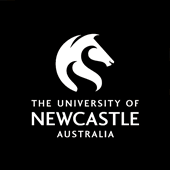
The Guru thinks graduates are ultra-cool. And graduate programs? Out of this world!
Graduate programs are offered by companies and corporations specifically for university graduates. They are designed to assist you to develop your professional skills and abilities. Graduates usually work on a diverse range of projects or in different departments within the one organisation. Graduate programs can last anywhere from 12 months to several years, with the idea that you are provided with ‘on-the-job’ training and experiences throughout your time with an organisation. These positions are paid, and are the equivalent of an apprenticeship.
Graduate programs are offered by many Government departments and large companies, many of which are listed in a free guide book that comes out annually around March called Graduate Opportunities (pick one up at the Careers Service).
Application dates for these programs close up to 12 months before a position would potentially start, so if you are about begin your last year of university in January 2010 and want to apply for a graduate program in 2011, dates can close anywhere between January 2010 and April 2010 – so you need to get in and get prepared early!
How do I begin searching for a graduate program?
1. Pick up a copy of Graduate Opportunities or visit the website
2. Scour the website of corporations you are interested in
3. Phone organisations you are interested in and inquire about their graduate programs
4. Pull together a draft resume, then make an appointment on CareerHub to get it checked over by a careers advisor. If you are short on time we have one hour each day where you can ‘drop-in’ to get your resume checked, no appointment needed. Check CareerHub for these designated times.
What happens if I get offered an interview?There are typical questions that interviewers ask, and we can help you prepare for these questions and offer appointments where you can practice with us.
-We can help with practice interviews
-We also hold many workshops, mostly during semester 1
-We have very helpful short DVDs on Assessment Centres, which are also good if you are attending a group interview
Please share your stories and comments, but be aware that the comments section is designed to either just comment or to engage in peer discussion. For any questions directed to the Careers Service staff, e-mail studentemployment@newcastle.edu.au (this is the Careers Service) or book an appointment with a Careers Advisor at CareerHub.



